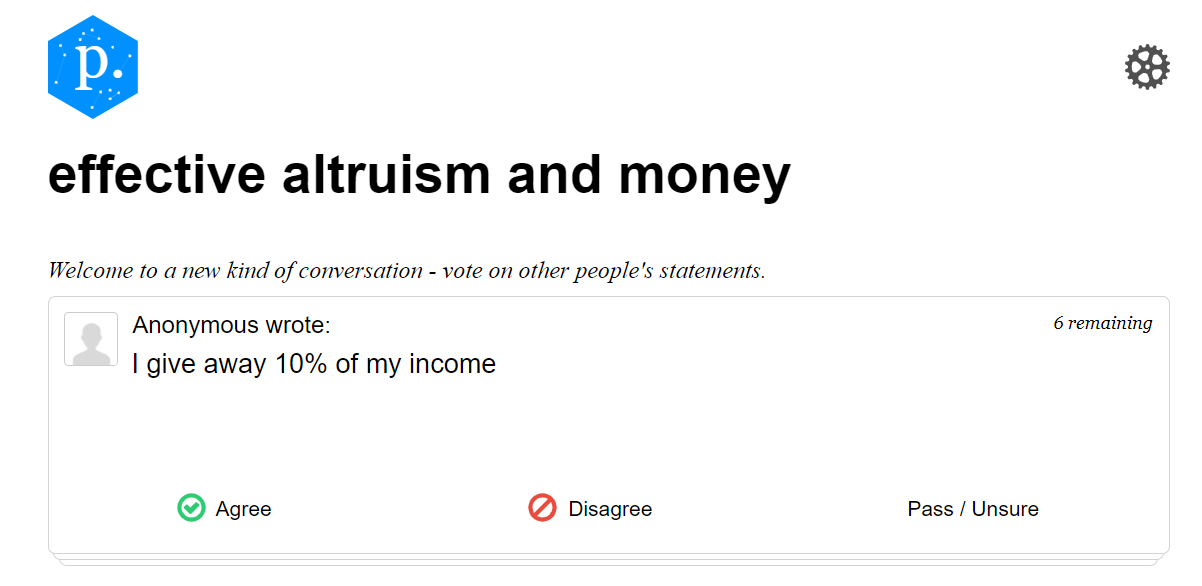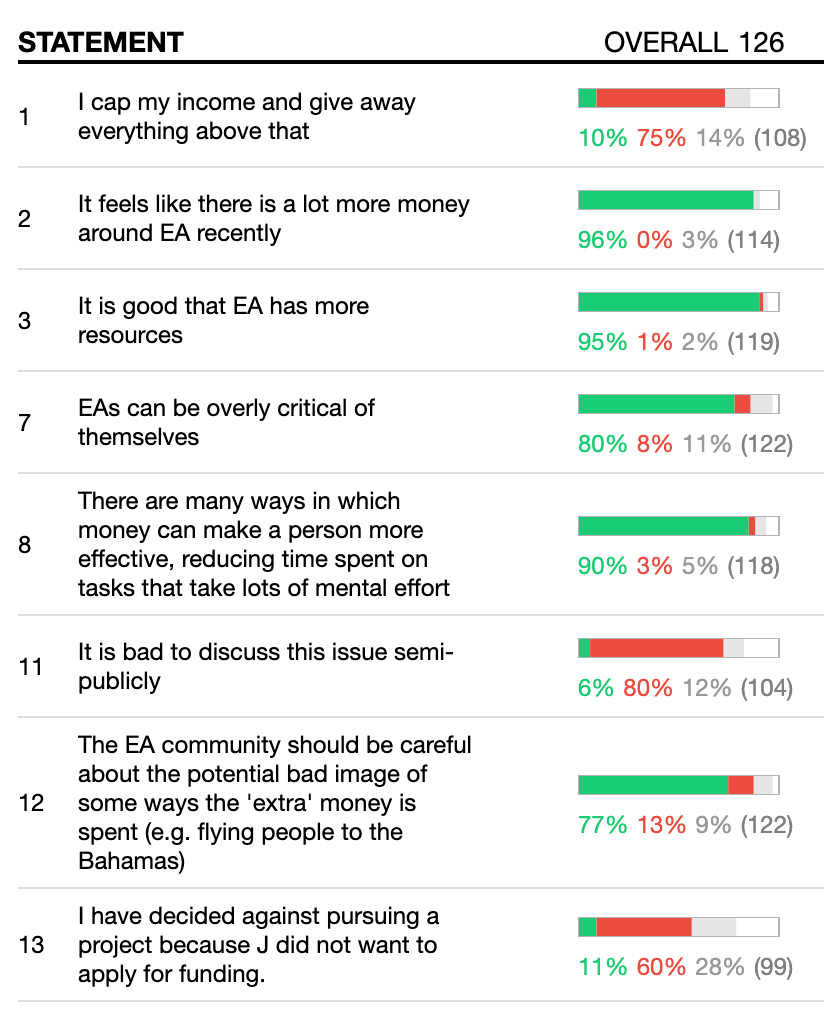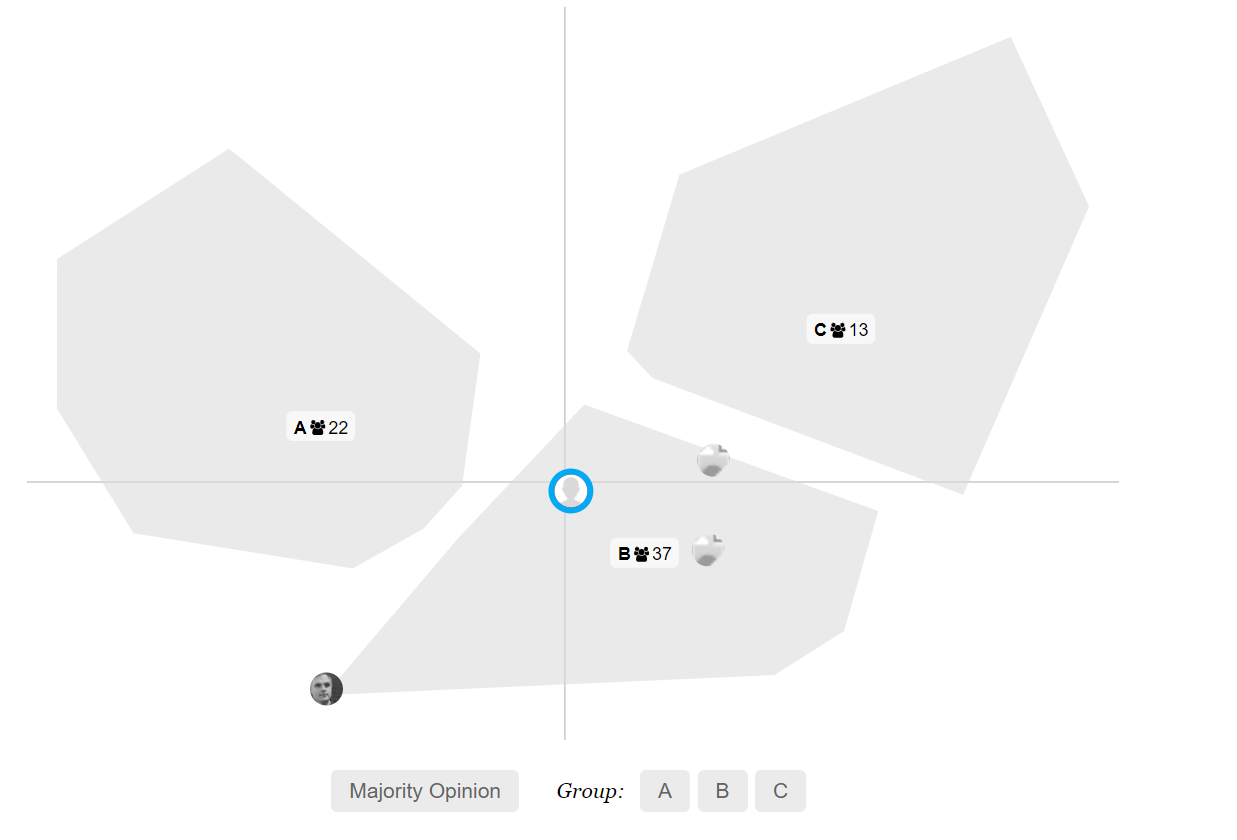Let's talk about the sharp increase in EA funding. I feel anxious about it. I don't think most of my feelings here are rational, but they do affect my actions, so it would be irrational not to take them seriously.
Some thoughts (roughly ordered from general to personal):
- More money is good. It means we have more resources to work on the world's most pressing problems. Yay
- I have seen little evidence that FTX Future Fund (FFF) or EA Infrastructure Fund (EAIF) have lowered their standards for mainline grants
- Several people have gotten in touch with me about regranting money and it seems it would be easier for the median EA to get say $10,000 in funding than it was a year ago. It's possible that this change is more to do with me than FFF though. And also, perhaps this is a good thing. I think it's positive EV to help well aligned people with finance to help them work on important projects faster.
- I'm really really really really grateful to EA Billionaries (in this case Sam Bankman-Fried) for working hard, taking risks and giving away money. I want to both express thanks and also say that working out how do deal with money as a community is important, reasonable work
- The joke "sign up to FTX Funds, I guess" is probably a bad meme. eg "I'm thinking of trying to learn to rollerblade" "sign up to FTX Future Fund?" suggests that FFF has a very low standard for entry. It is a good joke, but I don't think a helpful one.
- Perhaps my anxiety is that I feel like an imposter around large amounts of money - "you can't fund my project, I'm just me". As Aveek said on twitter, sometimes I feel "I wouldn't trust the funding strategy of any organisation that is willing to fund me". This is false, but sometimes I believe it, maybe you do to?
- Perhaps this anxiety is that I worry about EA being seen to be full of grifters. Like the person who is the wealthiest on their street, I don't want bad press from people saying "EAs are spendthrift". I don't think we are, but there is a part of the movement that does get paid more and spend more than many charity workers. I don't know what to do about this.
- My inner Stefan Shubert says "EA is doing well and this is a good thing, don't be so hard on yourself" and I do think there is a chance that this is unnecessary pessimism
- I talk about it on twitter here. I don't mind that I did this, but I think the forum is generally a better place to have the discussion than twitter. Happy to take criticism
- I have hang-ups about money in general. For several years after university I lived on about $12k a year (which is low by UK standards, though high by world ones). It's pretty surreal to be able to even consider applying for say 5x this as a salary. It's like going to a fancy restaurant for the first time ("the waiters bring the food to the table?") I just can't shake how surreal this all is.
- I think it's good to surface and discuss this but I'm open to the idea that it isn't and will blow over.
I've made a Polis poll here if you want to see how different views cluster








While I do not have anything to contribute to the conversation, I want to comment under my real name that I have experienced this same financial history and these same feelings. It is emotionally overwhelming to see how far one has come, it's socially confusing to suddenly be in a new socioeconomic class, and it's a computational burden to learn how to manage an income that is far greater than required for bare survival (a US standard for bare survival, not a global standard). I have actually sought therapy for this specific topic. There are people who specialize in this. It is my opinion that the absolute first priority if you can possibly help it is to get a "lay of the land" in regards to the scope and detail of your own emotions and subsequent biases, and take concrete action toward regulating your emotions in any potentially highly consequential areas. (Some of your feelings around this may actually constitute trauma. Being poor and the instability it induces trains one to stay constantly alert for danger, dissociates one from one's unpleasant surroundings, etc. In my observation, trauma is the single most dangerous inter/personal force on the planet.) It is not only okay, but desirable, to slow down one's decision-making and regulate oneself, even if there is opportunity cost. Reasoning under both ambiguity and (subjective) pressure is a very dangerous situation to be in, and I have concluded that it is best to address this psychological milieu before doing anything else, since impaired judgement has high and broad potential for negative impact.
If you want to talk about this in private, I am willing to do that as well. I know the reason that I don't like to discuss this publicly it that there is a "preferential attachment" (networks sense) effect where resources are concerned in many social settings, and I am reluctant to stigmatize myself as having ever been poor-- perhaps when I am further into my career and have been extremely financially secure for longer than I was financially insecure, I will not have the same concerns regarding any signaling that could disrupt my acceptance within a higher social class. I encourage persons who are already in that position to take on this burden, which will endanger you much less.
I have long and often complained about the cowardice of people who would not respond to a true and vulnerable call from another in public, even when the person is trying to help the demographic of the silent person. I don't AT ALL want to post this comment and frankly dread this being a search result for my name, but I don't see a reason that I should be exempt from this moral duty to undersign your experience as being at least twice-anecdotal: a product (at least partially) of external factors that bear consideration, not something generated from within you alone.
Thank you for writing this. I found the solidarity moving. I don't know if I'll respond privately or not, but thank you.